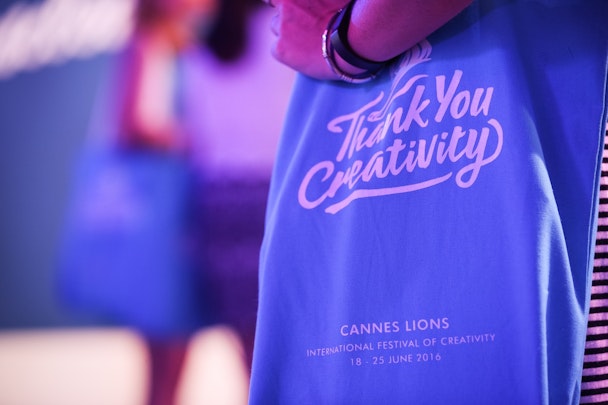A technologist's view of Cannes Lions 2017
The Cannes Lions festival is fixed point in the creative calendar, a longstanding beacon to which creatives the world over have flocked to both show and absorb the very best advertising and marketing campaigns from the previous year.

Although relatively unknown outside of the advertising industry, winning a Cannes Lion is, for many, the pinnacle of their career. This applies to creatives and brands alike – something that brings brands to the festival in big numbers.
There have been complaints from some of the larger agencies that the festival has become too commercialised and too expensive. The irony of an advertising firm calling out someone else for embracing commercialism seems completely lost on them.
I was invited to Cannes this year to appear on a panel discussion as part of the Lions Innovation part of the festival. Lions Innovation is a relative newcomer to the schedule, but has already established itself as an important part of the creative mix.
I went to the festival not knowing what to expect, having only my experiences of SXSW to fall back on. After getting my panel out of the way on day one, I spent some time attending a few innovation talks, chatting to various startups and attending some of the ubiquitous beach events. As the week wore on I started to notice something that in retrospect I might have predicted:
The way innovation is discussed at Cannes very much mirrors the way it is in agency land.
During my panel, the tenor of the audience questions I was asked required slightly defensive answers. While I enjoyed discussing the challenges faced by organisations looking to stay ahead of the curve, both culturally and from a product perspective, I felt that to some extent, ‘innovation’ was on trial.
Digression: I dislike the word innovation. It has become a shorthand for new technology, when in actual fact for me innovation is about solving problems in new ways. This might involve a new piece of technology, or it might simply be a new way of thinking, however the word has evolved to the point where it can be used to isolate certain types of thinking and working practices. Innovation has become a reductive term often used with a sneer by people who feel that technology dilutes creativity.
As head of labs for TMW Unlimited, I was asked to defend the agency ‘labs’ proposition. My response to this is that ‘Labs’ is not a fixed thing. It’s a statement of intent. It’s an agency saying to the industry that they are ready to experiment, to adapt and to evolve. If TMW Labs had remained a fixed offering, then we would have closed it years ago. Labs must test and learn, experiment and fail and then reinvent. In this respect, Labs is not so very different to the classic creative approach.
Startup founders are often young. They have not been inducted into a long tradition of a working within a profession. They therefore don’t afford the expected level of respect to the grandees of, for example, the creative professions. They have often worked briefly in a specific sector, found it to be stifling or broken and have decided to do something to fix it.
The innovation part of festival felt separate. A side event (physically below the main festival in a space underneath the main stages), but with the energy and bravado to challenge the old guard.
Snatches of overheard conversation as I walked past the cabanas seemed to confirm this. I heard a couple of marketeers complaining about the advent of ‘digital’ and how it’s changed the way in which they interact with people. The ‘connections beach’ was alive with conversations between mentors and startups looking for advice on how to talk to agencies and brands, but I saw little evidence of creative directors dispensing their wisdom to the new disruptors.
Most of the startups I spoke to were looking for advice on how to talk to creatives, how to get their foot in the door of a big agency. Honestly, this is still something I struggle with. While the agency for whom I run the Labs proposition has embraced the many opportunities afforded by being active and adding value to the startup world, there are still those who struggle to see this kind of innovation as anything other than the bit you add at the end - tick a few boxes.
The Lions Innovation talks, delegates and sponsors were great, the upstart brands (like Snapchat with their ferris wheel parked outside the palais and Facebook, Twitter and YouTube all owning significant sections of beach) added a vibrancy to the whole event that I suspect would be lacking if just left up to the usual suspects.
And yet, it wasn’t Cannes. Not for the old guard. For them it has to be about the films and posters and the celebrity talks. And if Publicis are to be believed, there wasn’t enough for them. Innovation, startups, solving problems in new ways has it’s place and that place is in the basement.
You know what? I’m happy with that. Disruption is scary. It comes from places you least expect it. I’m glad to be part of the basement crowd, because the basement can be found supporting everything else.
Marc Curtis is the head of TMW Labs

